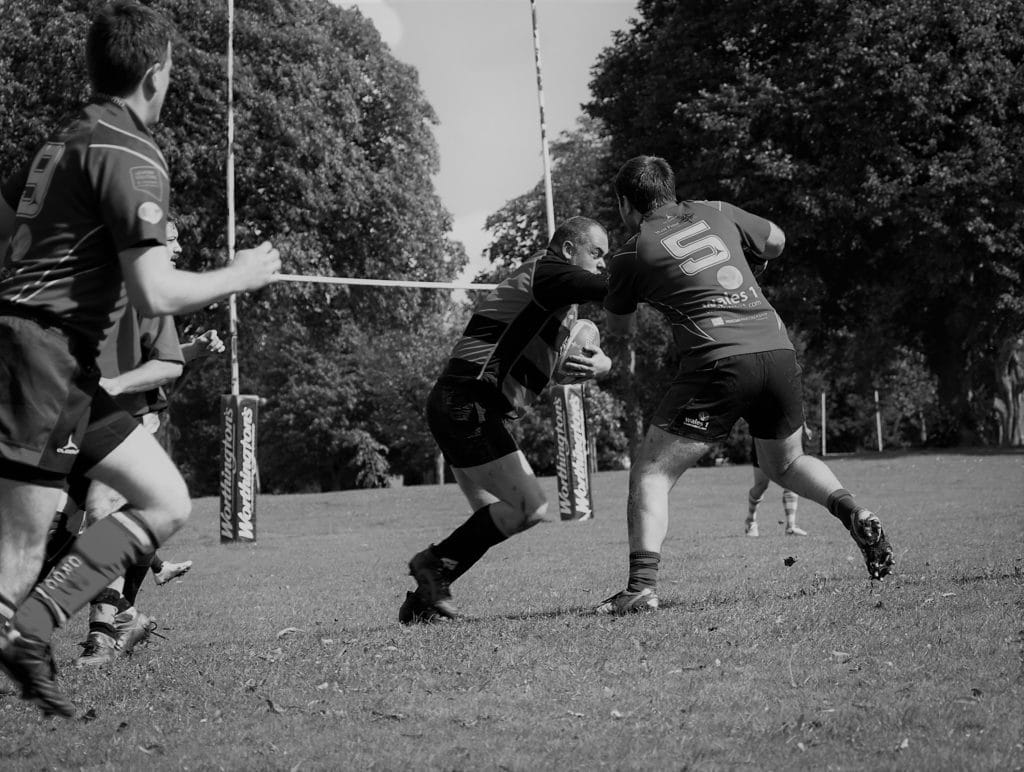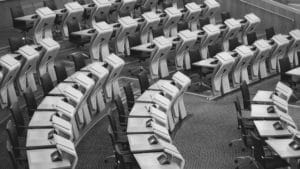Senior Account Manager, Ian Woodbyrne, evaluates the place for sport within the Health, Social Care & Sport Committee and proposes its potential inclusion within the Constitution, Europe, External Affairs & Culture Committee.
In June 2021, new MSPs to the Scottish Parliament were required to vote upon a motion extending the time allowed for the party groups to amicably form parliamentary committees. Reportedly, a contentious issue in need of resolution was the question of forming two separate health committees, given the extensive workload required in considering the recovery of NHS health services and potentially scrutinising a momentous piece of legislation to form Scotland’s National Care Service by the parliament’s end of term. The Health, Social Care & Sport Committee was eventually formed, regenerating from its former name of the Health & Sport Committee.
Naturally, the addition of social care in the title recognises the significant attention which will need to be paid to the area during this term. However, with the importance placed on health and social care in recovering from the pandemic, the committee is at risk of disregarding issues associated with sport and raising questions about its inclusion within this committee’s portfolio. During Session 5 of the Health & Sport Committee, just seven out of some 49 areas of committee business or inquiries considered by the committee were directly related to sport. At the close of that session, the committee conducted a short inquiry into the impact of COVID restrictions on sports clubs which raised a number of issues to be explored further related to finances, re-engaging participation, women and disabled people in sport, and mental health. Since the new Health, Social Care & Sport Committee was formed on Tuesday 22 June, all committee meetings and correspondence have been solely focused on either health or social care issues with no reference to sport.
Discounting sport within its own committee portfolio arguably represents an overall disregard for the distinct role of sport in Scotland’s society and economy, and suggests that sporting issues are solely related to health-related physical activity. With the ‘health committee’ broadly, and fairly, focused on key issues associated with NHS recovery and reforming social care, sport will continue to be placed to one side and any issues will evolve further. These broad range of issues include: cultural harms like sectarianism; funding issues for community sports clubs; and inequalities in the general accessibility of sport. Within the parliament’s committee structure, there are committees in place which could have been better placed to evaluate solutions to these challenges.
By drawing on parallels with the first session of the Scottish Parliament and the current session of the Westminster Parliament, there’s an argument for sport to reside within the Scottish Parliament’s Constitution, Europe, External Affairs & Culture Committee. In Westminster’s committee system, the Digital, Culture, Media & Sport Committee corresponds with the respective UK Government department of the same name, while health and social care receives respective committee and departmental focus. Differences will emerge between the Scottish and UK parliamentary systems; however, this separation also mirrors the committee makeup in Session 1 of the Scottish Parliament. In 1999, sport was placed in the Education, Culture & Sport Committee while health and social care issues were jointly represented in the Health & Community Care Committee. Aside from the inclusion of education, these respective committee makeups would arguably better suit the current political landscape in terms of allowing a committee to solely focus on the issues of health and care while sport could be considered in tandem with cultural issues; of which it has many.
Sectarianism as a cultural issue in Scotland regularly rears its head in relation to the sport of football, a matter which was raised consistently at the outset of this parliamentary term. Within an urgent question on Tuesday 18 May, James Dornan raised reports of abusive sectarianism in Glasgow’s city centre and called for strict liability to be introduced with football clubs held accountable for the behaviour of their fans. Patrick Harvie echoed the call, to which then Justice secretary, Humza Yousaf, acknowledged legislation may be considered in this area. Any attempt to legislate in this area would clearly be intended to address cultural issues in Scottish sport, with little to no bearing on issues related to the health or social care of the nation. Therefore, the Constitution, Europe, External Affairs & Culture Committee would be a more suitable home for consideration. The remit for this committee mirrors the remit of Angus Robertson’s cabinet secretary position in essentially promoting and developing a positive societal image of Scottish culture.
Football, despite obviously not being the only sport in Scotland, provides another argument for the Constitution, Europe, External Affairs & Culture Committee considering matters related to sport. Its predecessor in Session 5, the Culture, Tourism, Europe & External Affairs Committee, was assigned scrutiny responsibility for the UEFA European Championship (Scotland) Act 2020. Prior to COVID and international travel restrictions, Glasgow’s role as a host city for the Euro 2020 football championships represented the potential economic benefits that sport brings to Scotland. However, there has arguably been a lack of financial attention paid to sport within the general health budget. Within the 2021-22 Scottish Budget, sport-related investment sat with some of the lowest funding among health and sport spending plans. Active Healthy Lives and sportscotland received £15.4m and £33.7m, respectively, out of a budget in excess of £16bn. Such prioritised financial commitment to health-related issues is to be expected; however, sport-related spending would better align within culture and major events spending.
As evidenced by the Health & Sport Committee’s short inquiry last session, MSPs have taken a regular interest in the local funding support for sports clubs and re-engaging people with sport. At a Health & Sport Committee meeting on 15 December 2020, a discussion took place around financial support for the sporting sector and members stressed the importance of collaboration with local authorities in financially supporting community clubs. The Constitution, Europe, External Affairs & Culture Committee currently considers funding matters at a local level, with it receiving correspondence from the Accounts Commission related to cultural funding. By financially supporting these sports clubs from a community and cultural perspective, barriers for women or disabled people could also be more effectively addressed. Maree Todd, as Minister for Public Health, Women’s Health & Sport, responded to a written question around supporting more women into leadership roles by emphasising the importance of engaging to address inequalities in this area.
Health and social care will be such a key priority for the Health, Social Care & Sport Committee’s that it is difficult to see any sufficient attention paid to these sporting issues. In the long-term, improving outcomes for the sports sector would ideally benefit health-related issues such as mental health far better than treating the sector purely as an active lifestyle issue.



